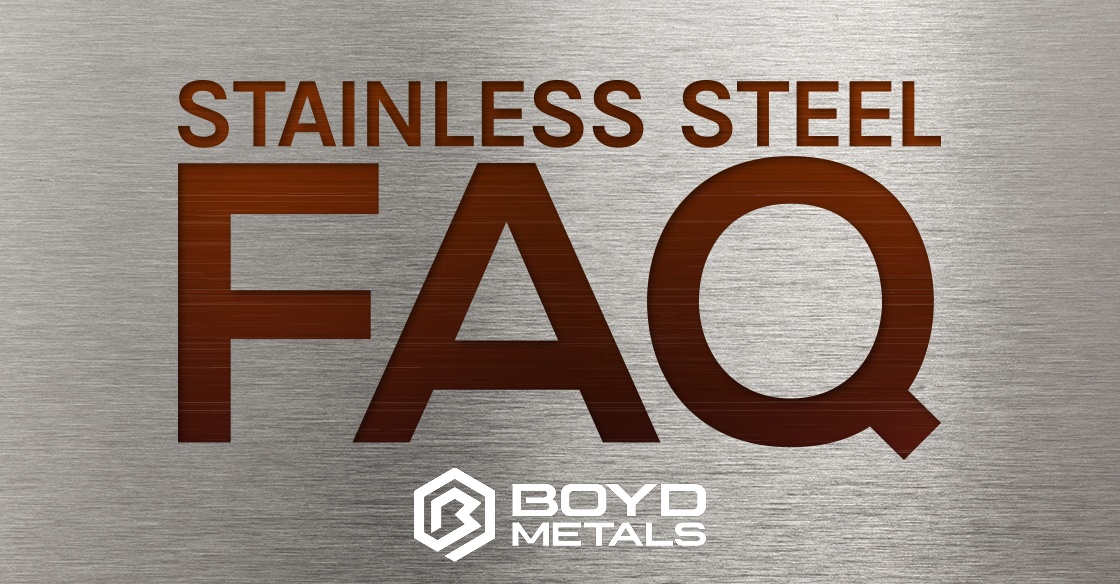Stainless steel permeates so many aspects of American life of today. The singular properties of this metal make it well suited for a wide range of applications - especially ones where conditions are demanding. From corrosion resistant cutlery and surgical tools, to food and pharmaceutical tanks, to water-tight watch housings and tools that can handle extreme temperatures; it’s safe to say that the world would be a different place without stainless steel.
Given its wide range of uses, it's no surprise that there are some unique questions that are frequently asked about this metal. We have selected the top five questions, and compiled here a list of interesting facts about stainless steel, by way of a response.
To clarify, stainless steel is not a single type of metal, but more like a family of metals. There are generally five different categories with multiple grades contained in each. Each has its own different properties and uses.
1. What is special about food grade stainless steel?
Food-grade stainless steel is special not only because it can withstand extreme temperatures, but also because it resists corrosion and is able to be easily sanitized. This ease of sanitization is due to the electropolishing process and the protective oxide layer of the metal. The electropolishing process strips away the outer layer of the stainless steel, leaving behind a microscopically smooth surface. Most typically, type 304 and 316 are the ideal choices for food grade stainless steel.
2. Is stainless steel really stainless?
Because stainless steel is nearly rust proof, it is considered to be stainless. Its chromium atoms bind so securely with its oxygen atoms that a nearly impenetrable and rust-resistant layer is formed. The oxygen atoms are captured by this layer before they can bind to the iron that is in steel so rust is never given the chance to form. (To read a short highlight of Harry Brearly and the invention of stainless steel, click here.)
3. How is stainless steel better than aluminum?
As we have already mentioned, stainless steel holds up well in extreme conditions. Aluminum can be used in several similar applications, like cookware. In terms of longevity, steel is harder than aluminum. This means it is less likely to bend, warp or otherwise deform due to force, heat or weight. Another huge difference is electrical conductivity. Stainless is a poor conductor of electricity, whereas aluminum is relatively conductive. Stainless is a great choice for projects requiring low conductivity.
4. Can stainless steel be successfully welded?
Yes! Fabricators weld stainless steel for all kinds of projects. With some small adjustments to the standard equipment, stainless can be welded. In order to weld austenitic stainless, the electrode or filler rod used must be stainless steel. Stainless can be welded to stainless, or to other metals, as long as the proper welding process, shielding gas and filler rod are selected.
5. Is stainless steel stored and handled differently than other metals?
If your small shop or home project requires you to store quantities of stainless steel, handling procedures are good to know. It’s best to store stainless steel away from other metals. Especially in acidic or damp environments -- stainless can cause galvanic corrosion in other metals. This type of corrosion typically leaves the stainless steel unaffected. Even with the strength and resistance to the elements, it is still possible to scratch, dent, and even cause corrosion (extended exposure to chlorine) to stainless. Care should be taken with the surface, and proper safety precautions should always be used.
Stainless steel is a versatile metal found in every industry today. The above questions are just the beginning when it comes to learning about its different properties.
*Types of stainless steel:
Ferritic
Austenitic
Martensitic
Duplex
Precipitation hardening



